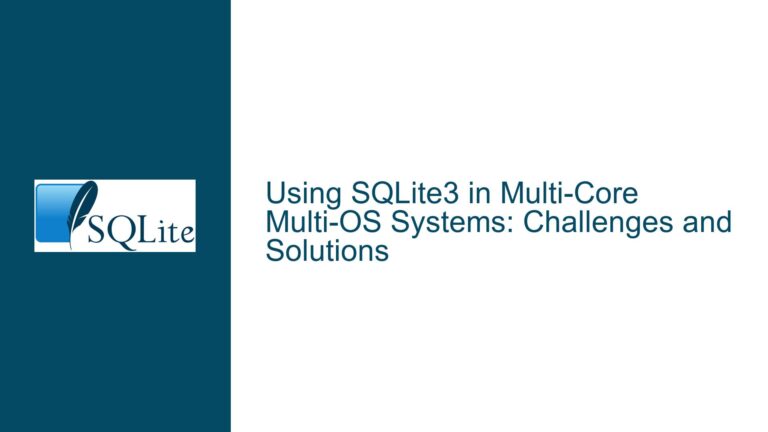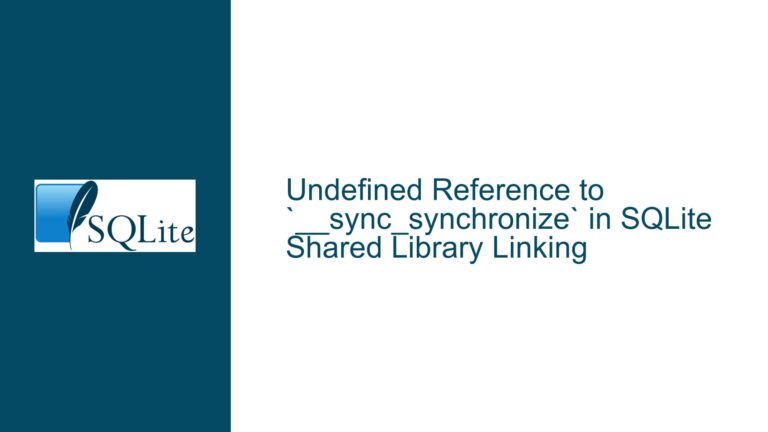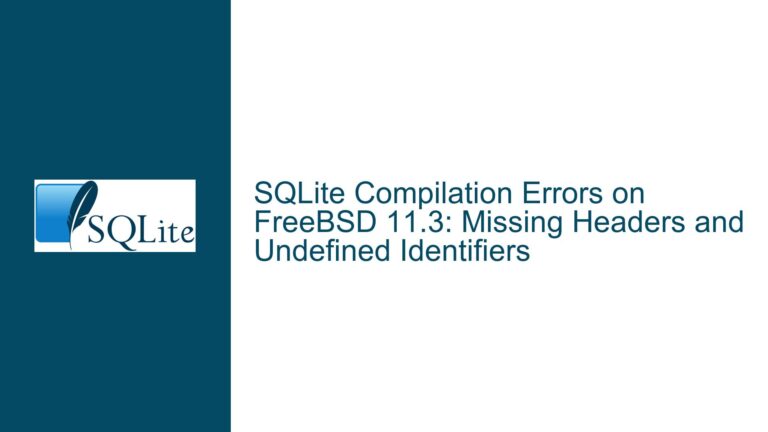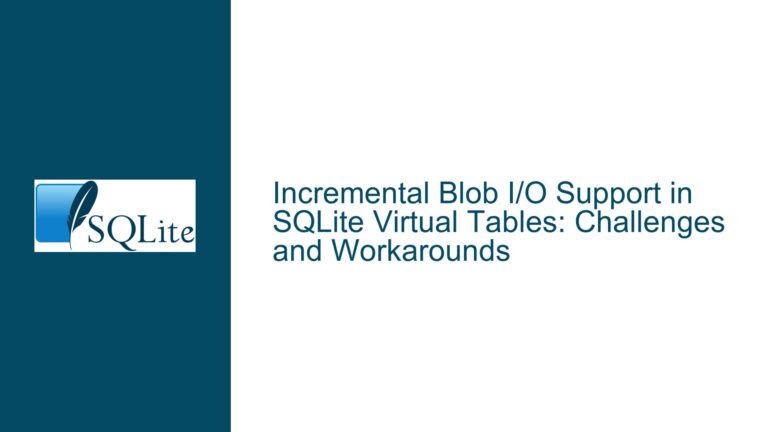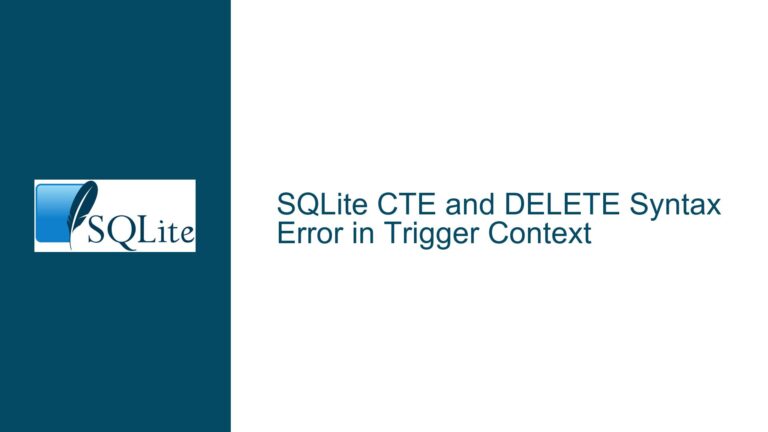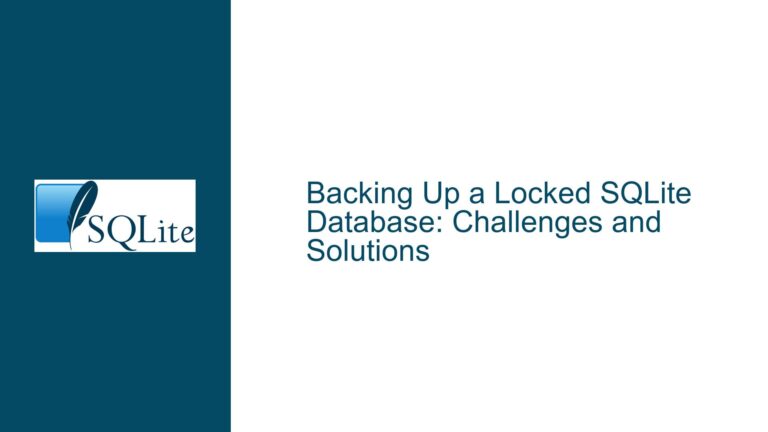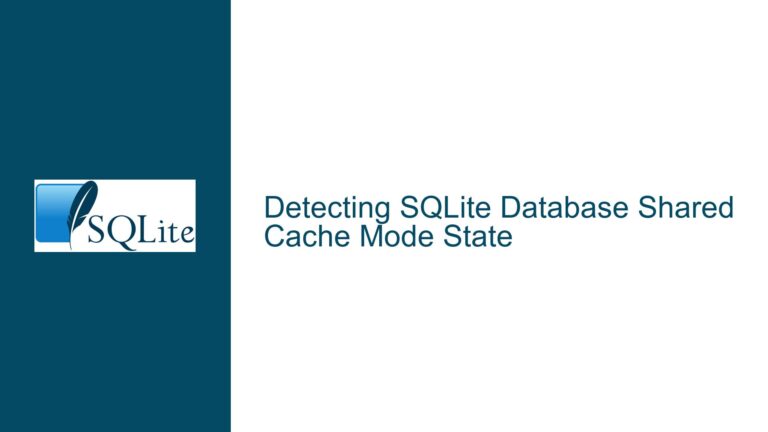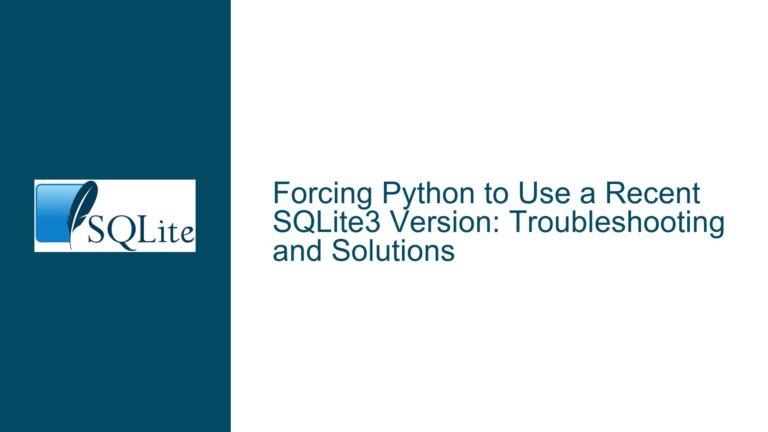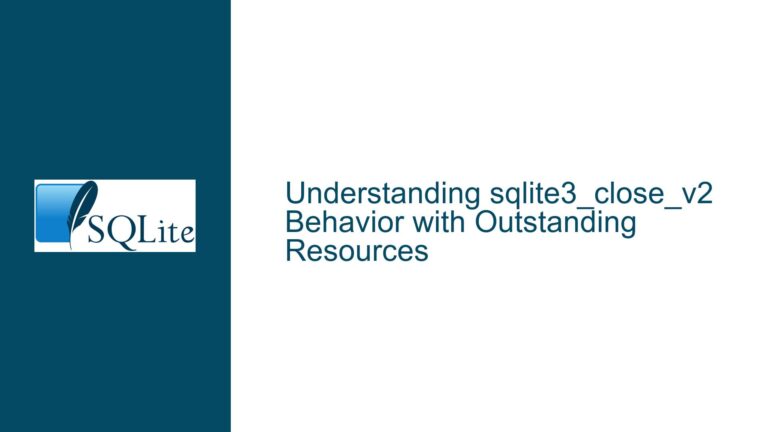Using SQLite3 in Multi-Core Multi-OS Systems: Challenges and Solutions
SQLite3 Concurrency in Multi-Core Multi-OS Environments SQLite3 is a lightweight, serverless, and self-contained SQL database engine that is widely used in embedded systems, mobile applications, and desktop software. One of the key challenges when using SQLite3 in multi-core multi-OS systems is ensuring proper concurrency and data integrity across different operating systems and hardware cores. In…
